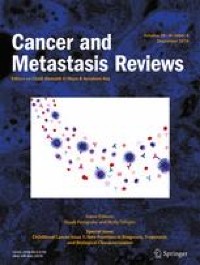Abstract
There is increasing evidence that postoperative infectious complications (PICs) are associated with poor prognosis after potentially curative surgery. However, the role that PICs play in tumor development remains unclear. In this article, we reviewed the literature for novel insights on the mechanisms of cancer progression associated with PICs. The Medline and EMBASE databases were searched for publications regarding the role of suppression of antitumor immunity by PIC in tumor progression and selected 916 manuscripts were selected for this review. In addition, a summary of the authors' own experimental data from this field was set in the context of current knowledge regarding cancer progression under septic conditions. Initially, sepsis/microbial infection dramatically activates the systemic immune system with increases in pro-inflammatory mediators, which results in the development of systemic inflammatory response syndrome; however, when sepsis persists in s eptic patients, a shift toward an anti-inflammatory immunosuppressive state, characterized by macrophage deactivation, reduced antigen presentation, T cell anergy, and a shift in the T helper cell pattern to a predominantly TH2-type response, occurs. Thus, various cytokine reactions and the immune status dynamically change during microbial infection, including PIC. We proposed three possible mechanisms for the tumor progression associated with PIC: first, a mechanism in which microbes and/or microbial PAMPs may be directly involved in cancer growth; second, a mechanism in which factors released from immunocompetent cells during infections may affect tumor progression; and third, a mechanism in which factors suppress host tumor immunity during infections, which may result in tumor progression. A more detailed understanding by surgeons of the immunological features in cancer patients with PIC can subsequently open new avenues for improving unfavorable long-term oncological outcomes as sociated with PICs.



No comments:
Post a Comment